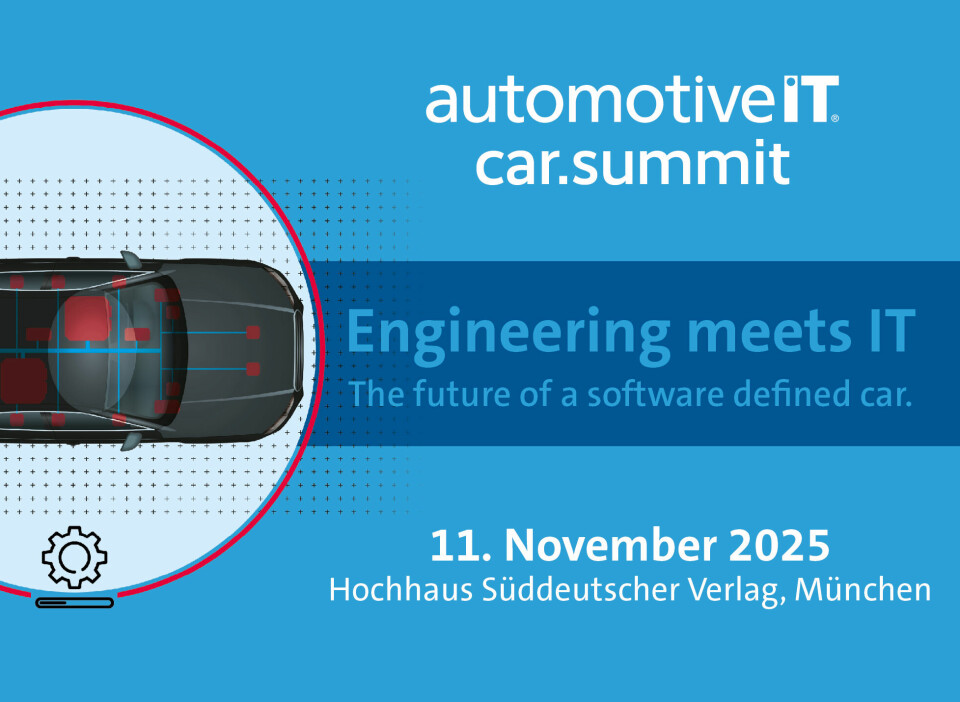Security in the connected car
How blockchain ensures greater cyber resilience
Especially with regard to data integrity and traceability, blockchain could make the connected car of tomorrow more cyber secure.
Adobe Stock / abdul studio
Although it has become quiet around them, blockchain technologies in the automotive industry continue to offer significant potential - especially when it comes to cybersecurity in future generations of connected vehicles.
The future of mobility is connected: vehicles communicate with their surroundings, download OTA updates, and offer digital services. This not only increases comfort and functionality but also attack surfaces - whether through manipulated software, compromised sensors, or subversive interventions in the supply chain.
The order of the day is cyber resilience. "Blockchain can potentially contribute to cyber resilience in the automotive sector," says Frederic Meyer, blockchain expert at Bitkom, "for example, through tamper-resistant log hashes, verifiable software update proofs, or concepts for decentralised identity and authorisation management of vehicles and components." This can make connected vehicles, in particular, safer.
"Blockchain can offer significant added value, especially in the area of integrity and traceability," says Yannik Heinze, CEO of Softstack, a provider of Web3 cybersecurity and smart contract audits. A decentralised infrastructure enables tamper-proof storage of vehicle information, forgery-proof identities for vehicles and components, and verifiable communication protocols between vehicles, infrastructure, and cloud systems. "This creates an additional layer of defence against attacks aimed at altering or deleting data," emphasises Heinze.
Blockchain creates trust in data flows
After all, connected vehicles today are part of highly complex cyber-physical systems when they interact with their environment in real time, exchanging data with other vehicles or the infrastructure, says Amr Alanwar, who researches cyber-physical systems at the TUM Campus Heilbronn. “This means vehicles take on safety-critical functions - especially in automated and autonomous driving.”
This is exactly where blockchain technology can create added value: “It creates trust in data flows because every transaction is tamper-proof and transparently documented, protecting critical information such as position or sensor data from manipulation.”
At the same time, vehicles generate enormous amounts of sensitive data - from location information to driving behaviour. “Blockchain enables owners to retain control over this data through smart contracts by automatically enforcing access rights,” explains the professor. Insurers, workshops or fleet managers only gain access if authorised - and every request is transparently logged. “This strengthens data protection while simultaneously reducing the potential attack surface for hackers,” emphasises Alanwar: “Blockchain opens up new possibilities to better secure the interaction of real-time data, forecasts and safety checks.”
Automotive industry too hesitant with blockchain
Sebastian Becker, managing director of the Blockchain Association, sees it that way too, but he misses that German OEMs and suppliers are using these opportunities boldly: "There is a lack of a big picture, a strategic 360-degree understanding." The local automotive industry did discover the topic early and worked intensively on it, but the industry crisis and the mega-topic of AI pushed it into the background. What is gradually changing: "Especially in terms of resilience, blockchain is becoming more important again, as it can play a major role as a kind of automation technology with strong trust components, for example in connected driving," emphasises Becker.
What does blockchain do for the automotive industry?
Blockchain is a decentralised, tamper-proof database technology that stores transactions in a linked structure. Every change is transparently documented and cannot be manipulated afterwards.
Why is blockchain technology relevant for automotive?
- Secure data transmission: protection of sensitive vehicle and customer data
- Supply chain management: seamless tracking of components and materials
- Mobility services: trustworthy billing for car sharing, charging infrastructure or autonomous vehicles
- Over-the-air updates: tamper-proof software updates
Research collaborations, such as between TUM, KTH Stockholm and Scania, are working on combining quantity-based estimates, data-driven forecasts and reinforcement learning, reports Alanwar: "Blockchain could guarantee the authenticity and immutability of the signals exchanged between vehicles and the environment." Heinze already sees initial approaches in the area of OTA updates, where blockchain is used to ensure that only authorised software enters the vehicle.
There are also pilot projects in the area of supply chain security - such as tracking components and their firmware history. "Another exciting field is decentralised key management for access and start systems, as well as secure car-to-car or car-to-infrastructure communication," explains the expert. The key is resilience through decentralisation, as there are no single attack vectors like central servers.
The hurdles are numerous and high
However, the potential will not be realised overnight. Becker sees mainly regulatory problems and the lack of powerful crypto chips that would need to be integrated into the architecture of the vehicles. "The introduction of blockchain in the automotive industry still faces crucial hurdles that need to be addressed before widespread implementation," seconds Alanwar.
Standardisation is urgently needed - with common protocols for V2X communication and blockchain-based security solutions to ensure interoperability between manufacturers and systems. "At the same time, questions about compliance with data protection laws such as the GDPR and data sovereignty remain unresolved, which brings legal and ethical challenges," says Alanwar. "Another critical barrier is real-time capability, as blockchain solutions must process transactions within milliseconds to support safety-critical decisions in autonomous vehicles."
Finally, closer industry-wide collaboration between car manufacturers, suppliers, and research institutions is necessary to create a robust, trustworthy ecosystem that can fully exploit the potential of blockchain.
“The biggest challenge currently is the practical implementation in a highly regulated environment like the automotive industry,” summarises Heinze, “blockchain must be able to integrate into existing safety and security architectures without jeopardising performance or certifiability.” In addition, scaling and energy efficiency must be ensured. “The high energy consumption of some blockchain mechanisms contradicts the trend towards greener mobility,” emphasises Alanwar. Nevertheless, Heinze is convinced: “In my view, the technology is mature enough to create added value in some critical areas today if used correctly.”
This article was first published at automotiveit.eu























